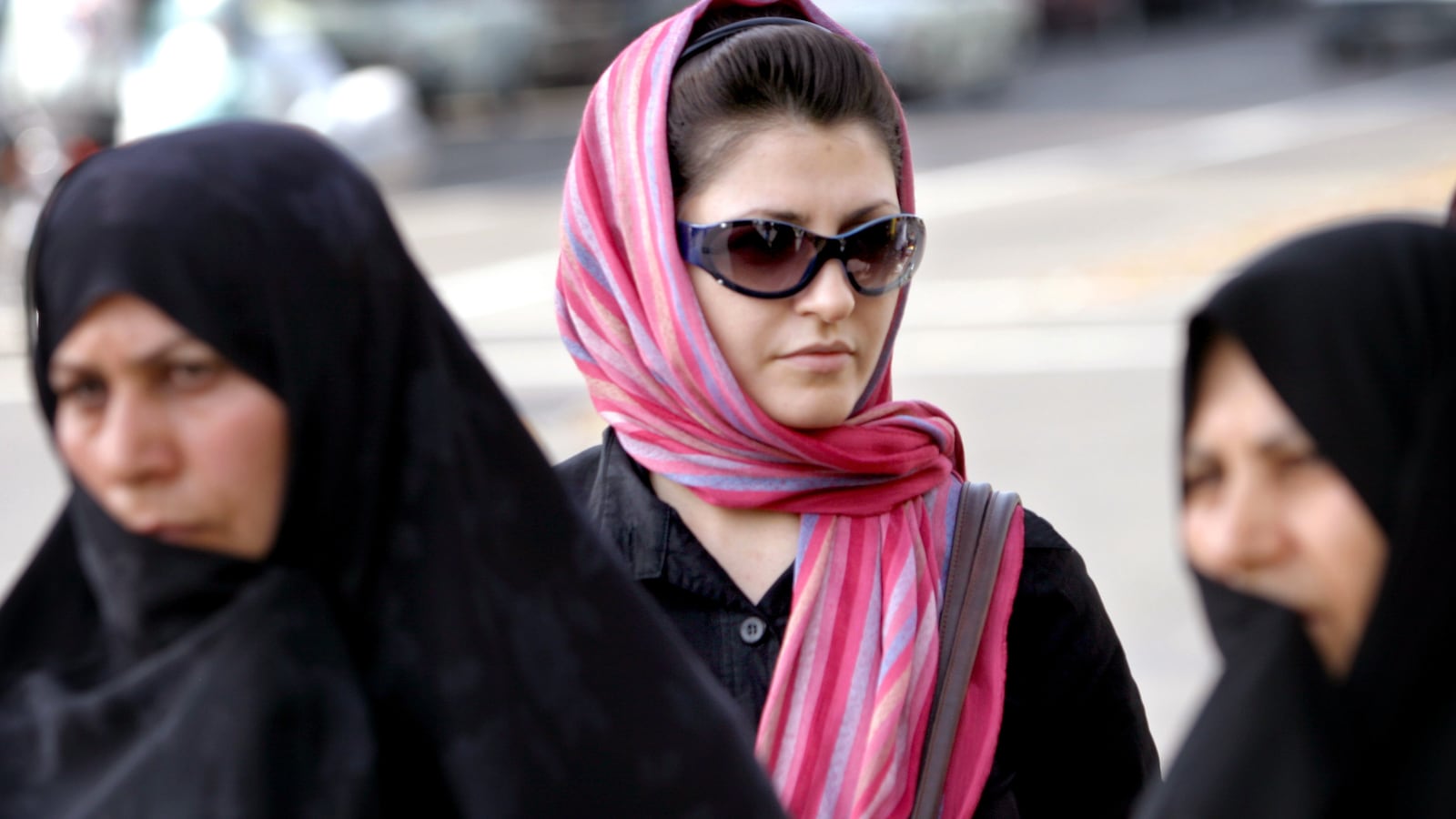Two women are in critical condition after an angry driver targeted them on a busy street in northwestern Iran because they were not wearing full hijab head coverings, according to Iran’s Labor News Agency Ilna.
The vehicular assailant reportedly first yelled at the women that they were being “un-Islamic” because he did not think they were sufficiently well-covered. All females over the age of 9 are required to cover their heads and curves after Iran’s 1979 Islamic Revolution, but it is increasingly common for women in Iran’s larger cities to defy the ruling.
The man then drove over them in his Peugeot, causing serious but not life-threatening injuries. Images on Ilna agency show a woman dressed in a pink smock lying on the pavement.
While Iran’s leadership does support the hijab rule, Hojjatoleslam Behnam Delrish, the secretary of the headquarters for the group that enforces such rulings, condemned the attack. “Yesterday’s behavior is the wrong behavior,” he told Ilna. “We ask the media to enlighten because such scenes are not related to enjoining the good and forbidding the evil, and people should not be allowed to abuse.”
The driver, who fled the scene, was identified and arrested late Monday night. The public prosecutor said he is cooperating. “After being informed of a deliberate accident on Kashani Street and injuring two women in this incident, the necessary orders were immediately issued to the investigator and the necessary measures were taken to arrest the perpetrator, who finally cooperated effectively,” he said. “The culprit will be investigated and punished with determination. We will not allow arbitrariness and lawlessness to anyone, and anyone who endangers the lives, property, honor, and security of the people will be dealt with severely.”
Iran’s vice president for Women’s affairs, Masoumeh Ebtekar, has asked that the charges be increased to include attempted murder.
Iran is notoriously easy on crimes against women. In 2019, a bill meant to provide greater protections was heavily criticized by the Center for Human Rights in Iran (CHRI), which said it “does not provide effective and sufficient guarantees to protect women against violence and, in many cases, promotes and supports stereotypical, discriminatory, and sexist views toward women.”
The group said the bill, which did eventually pass, did not clearly define the term “violence” or “domestic violence” as punishable crimes. Nor did it provide for the removal of victims from their abusers. The bill also requires women who file complaints against their abusers to go through a one-month reconciliation process before court proceedings can begin in case the dispute can be resolved outside the judicial system. The group also condemned the absence of any measure for an abused woman to get a divorce on the grounds of abuse until and unless her husband is convicted three times.






